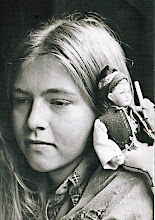Troy seems like such a nice peaceful place. But on July 1, 1878, Thomas Buckley, Treasurer of the Troy Hosiery Mills was garotted and robbed of $3,000 while riding the Troy and Albia horse-drawn streetcar. He survived though, and according to the New York Times, $1,484 of the money was recovered. Within days, several people were arrested, James Finn of Troy, John Fellows of Newark, New Jersey, and John Donohue, who refused to say where he was from. The victim was able to positively identify both Donohue and Fellows. Three other suspects were still at large.
One of the suspects, Thomas Monahon, had been taken into custody several days later, but escaped by jumping out a window. The next day, a conductor on an eastbound train of the
Boston and Albany Railroad, spotted a passenger who matched the description of Monahon. The conductor telegraphed ahead to North Adams, Massachusetts for two officers to meet the train and arrest Thomas Monahon, who was traveling with his brother. They arrested the two and handcuffed them together, but somehow the suspects had gotten guns and Thomas was able to shoot Officer Quinn fatally before he and his brother were stomped into unconsciousness by fellow passengers.
Detectives were still on the hunt for two additional suspects,
William "Mush" Riley, a notorious criminal from New York City and Will Tompkins, who planned the robbery. Unlike Mush Riley, Tompkins was from high society. He was married and was a partner in the Simmons and Tomkins firm, a knit goods manufacturer. The police had been informed that Tompkins might be recovering from the robbery at a particular residence in Richmond, Massachusetts. Since there wasn't any regular train service at the time, they hopped a freight train and told the conductor that they would like to arrive in Richmond before the express train from Pittsfield, which was carrying several of the detectives who had just left Monahon. The conductor increased the speed of the freight train and managed to arrive five minutes before the express.
The officers went to the house and tried to gain admittance by saying they were there to visit the sick man (Will Tompkins), because they didn't have any legal authority to force their way in. When that didn't work, they went to see the doctor across the street, assuming correctly that he had treated the suspect. As soon as they told him that Tompkins was wanted in connection with the death of Officer Quinn, he agreed to help them. Tompkins was sick in bed with a revolver under his pillow, but he surrendered without incident. Although requisition papers were filed to move Tompkins back, the New York Times reported on July 14th that Tompkins was sick with brain fever and could not be moved. An officer remained with him during his recovery.
Source: New York Times, July 2, 3, 9, 11, 14, and 16, 1878
And if that's not enough mystery and intrigue for you, what about the message on the back of this card, sent in 1925?
The message from Billy Hannam reads:
Dear daddy
This is where we change cars (care?)
Rick went to work this morning has a job in Alex's office
love from
Billy
Why is Billy writing a postcard to his own father? Was he spending the summer in Troy?





















